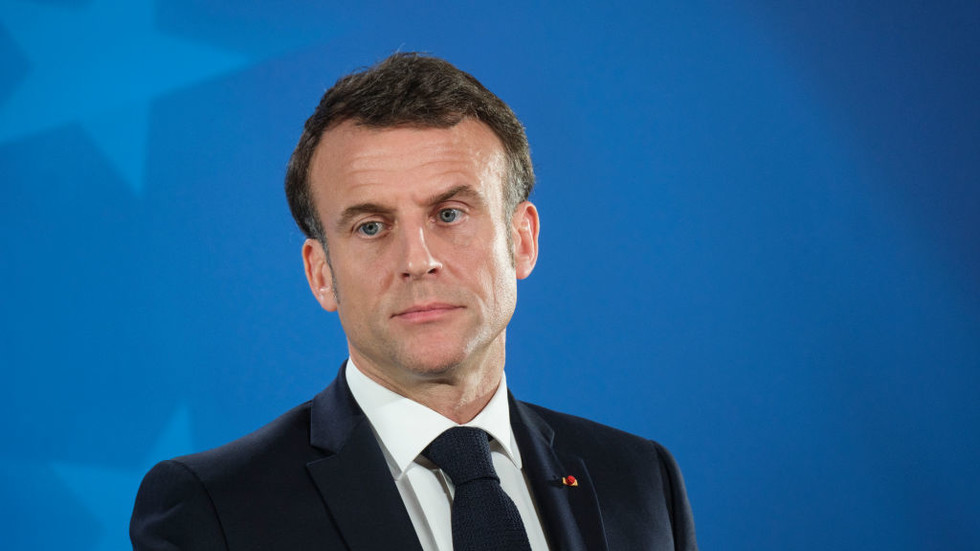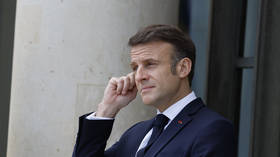
The distinctive dessert was reportedly replaced with a less politically-tied alternative at Emmanuel Macron’s dinner with his Chinese counterpart

© Getty Images / Thierry Monasse
A last-minute change at French President Emmanuel Macron’s dinner with Chinese counterpart Xi Jinping caught media attention on Tuesday: the favorite dessert of many a French leader was suddenly dropped from the menu, seemingly over its connection to Russia.
On the second day of the Chinese president’s state visit, the two leaders and their wives dined at the ‘Etape du berger’ restaurant at the Col du Tourmalet ski resort in the Hautes-Pyrenees region. According to La Depeche news outlet, the menu, pre-agreed several weeks in advance, consisted of traditional Pyrenean dishes: black pork ham, lamb shoulder, porcini mushrooms and local cheeses.
The dinner was to end with a dessert called ‘Russian cake’ (Gateau Russe), a local specialty with a recipe dating back to the 1920s, which at that time included almonds harvested in Crimea.
“I proposed the menu at the Elysee a few weeks ago,” the owner of the restaurant Eric Abadie told the news outlet.
However, according to the report, “given the sensitive geopolitical context” the ‘Russian cake’ was replaced at the last minute with a less politically-tied alternative: blueberry tart.

According to the Artigarrede house, a family pastry shop which has held the secret recipe to ‘Russian cake’ for over a century, Francois Mitterrand was the first French leader to favor the pastry and introduced it to dining tables at the Elysee Palace. His successors Jacques Chirac and Nicolas Sarkozy also appreciated the dessert and served it often at official receptions. Both Emmanuel and Brigitte Macron are also known to love it.
Xi visited France amid a tense geopolitical situation surrounding the Ukraine conflict, which was reportedly one of the main topics of discussion between the two leaders. Unlike France, which condemned Russia for the hostilities and slapped it with economic restrictions, China refused to join in sanctions and instead boosted trade with Moscow. China’s stance has drawn criticism from the West, which has warned Beijing that it could also face sanctions if it continues to cooperate with Russia.
READ MORE: Xi refuses to back Zelensky’s unilateral ‘peace conference’
During talks with Xi this week, the French president once again urged the Chinese leader to make sure his nation does not provide any aid to Moscow that could be used against Kiev. At the leaders’ joint press-conference on Monday, Xi urged France and other Western nations not to “cast blame” on third countries for the Ukraine conflict and instead focus on ways to find a peaceful solution.




